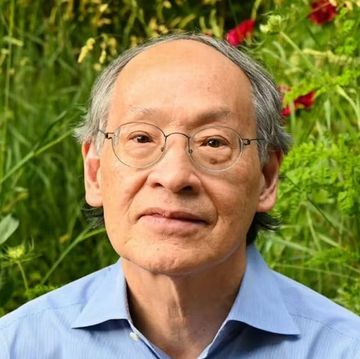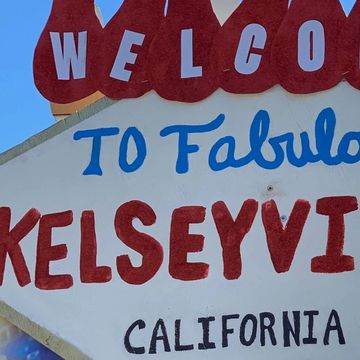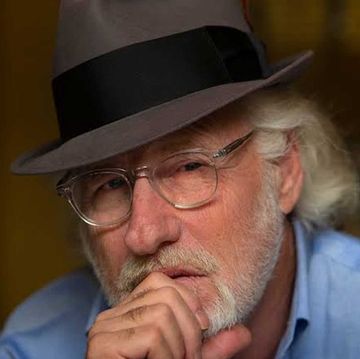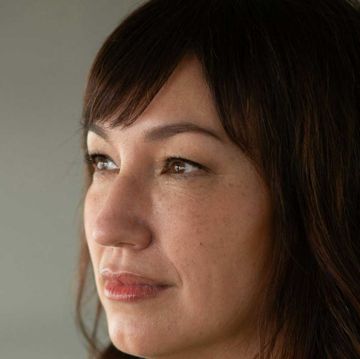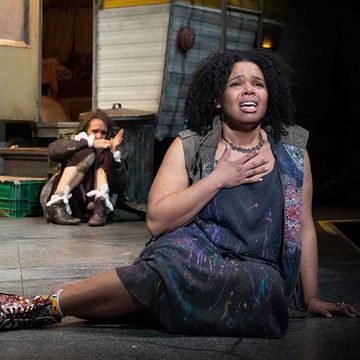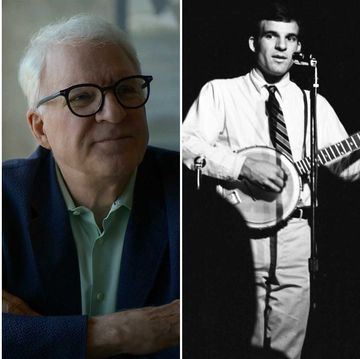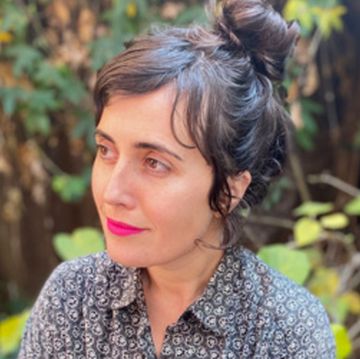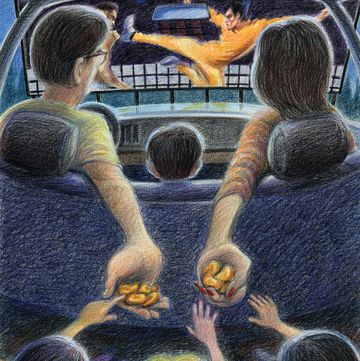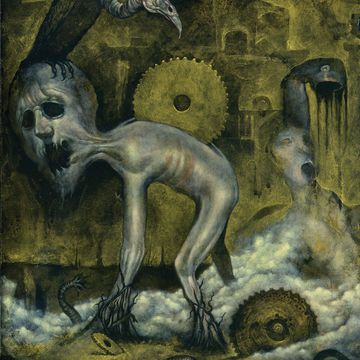Oh, the writing life—that mysterious pursuit, that elusive bird.
Like many children who loved books, I grew up wanting to be a writer, though I had no idea what, in concrete terms, “being a writer” really meant. It’s like dreaming of becoming a marine biologist or a firefighter or (as my little brother did) a “workerman”—the child’s image of her dream profession is a watery one: all possibility and blur.
Then came the future, and my dream profession took on more practical contours. What did the writing life really look like in full focus? How were one’s days spent, how did books come into being, how did one get lucky enough to publish a book—to publish anything at all? What of the pesky concerns of adulthood: How to meet the demands of bureaucracies and bills? The mandates of the physical body (managing to eat lunch, for instance, or go to the doctor every now and again)? The desire to care well for loved ones? How was it possible to attend to all this while also pursuing mystery and exaltation and discovery on the page?
My own answer to this has been rather simple: I’ve just always had other jobs. So I’ve wondered about the people who manage a life made entirely of writing.
This article appears in Issue 25 of Alta Journal.
SUBSCRIBE
One such person is Alta Journal’s books editor, David L. Ulin, whose prismatic career of letters is so vast that to narrate his résumé in full would require many pages of this publication. In brief: Ulin is the author or editor of more than a dozen books, including two Joan Didion anthologies and another of writing from his adopted home of Los Angeles; the editor of an online lit magazine; a former book editor for the Los Angeles Times; a professor of English at the University of Southern California; and the winner of several fellowships. His forthcoming noir novel is Thirteen Question Method.
READ AN EXCERPT OF "THIRTEEN QUESTION METHOD"
A novelist, an essayist, an anthologist, a journalist, a critic, a nonfiction author, a writing teacher, an editor—his is a life knitted from words. “I see it all as a coherent personal and cultural ecosystem,” Ulin says of the many facets of his writing existence. These various roles support one another, a virtuous circle.
The writing life offers no clear road map—not for Ulin or for anyone else. As a kid obsessed with reading and even into his literary college years (during which time he wrote a 250-page novel manuscript), Ulin, too, dreamed of becoming a professional writer. What he pictured, though, was a life writing books. At some point in his 20s, he realized that achieving some approximation of the writing life would require doing other things, too. He began to write some criticism and found he loved the demands of engaging with a book’s central questions on the page. Then he started to write some journalism—this, too, he loved, for the opportunity to go out into the world and learn something. Eventually, he began editing and then teaching. Each new role filled his cup with something new.
Some writers feel aggrieved by the simple equation that, in this country, anyway, and at this time in history, writing books doesn’t tend to pay the bills. But for Ulin, the requirement to step into other writing or writing-adjacent roles turned out to offer tremendous artistic liberation.
“It means I can write whatever book I want without having to worry about what its market share is going to be,” he tells me. “To be perfectly blunt, my books are weird, and I like them.” If he’s going to spend many years working on something, it must be deeply interesting to him in terms of both subject matter and form—and one never knows what the market will bear. With so many other projects underway at any one time, his books’ financial success can be secondary to the pleasure he gets from researching and writing them.
“I wish I’d been smart enough when I was younger,” he reflects, “to figure that out.”
One thing Ulin did figure out early on is that the writing life is built, in large part, of an ethos of saying yes—to assignments, to jobs, to trying out new literary forms, and even (if grudgingly) to moving from New York to L.A., a place where he soon developed a fascination with its underappreciated intellectual history and where he has constructed, over the proceeding decades, a true artistic home.
“I say yes to things because they end up getting me into situations that I had no idea I was going to be in, and then I learn all this stuff,” he says. The roles have been delights in their own right, but also useful in the bigger picture: an assignment would lead to another assignment; an editing gig would lead to a staff job; an article would lead to a book.
I’ve recently begun to think of words as units of energy, like neurons, and of writing—good writing, anyway, the kind I love to read and hope to write—as a form of energy transfer. So, too, perhaps, with other elements of the writing life. How to ensure that its manifold aspects do indeed support one another, rather than just suck one’s energy down the drain? Consider the remarkable energy demanded of Ulin each day, each week, each month, not just in managing his responsibilities (syllabi! editorial deadlines! manuscript edits! interview appointments!) but also in placing word after word onto the page. Truly charmed by the world and also electrified by its wounds, he strikes me as a kind of alchemist; he’s figured out the magic of the energy transfer.
In the classroom, for instance, he doesn’t just see himself as instructing others. “I’m learning an immense amount about my perceptions, my sense of language, my sense of meaning,” he reflects. “All of it is constantly changing, and a large part of that is driven from my proximity to people in their early 20s.” The writing life, in other words, is a matter not just of output but of input, too.
The fact is, few writers only write. “Franzen immediately comes to mind. But that may be the only one,” Ulin offers. Perhaps there were once many writers who passed their time ambling the countryside or stalking the city streets in the company of their boundless thoughts, who locked themselves up for hours each day to scribble before a window—emerging, finally, for dinner and the occasional social engagement. But this is likely more of a myth. Faulkner sorted mail. Kafka was an insurance clerk. Baldwin worked on the railroad. There have always been bills to pay and other matters of life to attend to.
There’s also the mandate to read—for reading is, in Ulin’s eyes, the heart of the writing life. “We possess the books we read, animating the waiting stillness of their language,” he wrote in a 2009 essay that served as the seed for his later book The Lost Art of Reading, “but they possess us also, filling us with thoughts and observations, asking us to make them part of ourselves.” We metabolize the books we read into our lives.
Achieving and sustaining the writing life is no easy feat, and while Ulin shares this with his students, cynicism isn’t part of his exuberant playbook.
“I believe it would be morally improper to discourage any young person who wants to be an artist from being an artist,” he says. He’s honest in his counsel. To build this life requires building various writing muscles; it requires time in the chair and time learning and hustling out in the world; it requires risk, which is easier for some than for others (Ulin had some family assistance when he was younger, which he’s quick to acknowledge made a marked difference in the choices he was able to make in favor of writing); it requires an ethos of “yes,” as well as an ethos of not taking the many inevitable nos of the writing life to heart. As Baldwin posited, “talent is insignificant. I know a lot of talented ruins. Beyond talent lie all the usual words: discipline, love, luck, but most of all, endurance.”
This life of endurance is perhaps a far cry from what Ulin imagined as a little boy, or as a college student working on a novel—or what I dreamed of as a young admirer of books. But he loves the life he lives; it lights him up. And it’s much less solitary than he once pictured, too. He urges his students: Find community, look out for one another, create and share opportunities for others. And, once you’ve eked out some scrap of success, lower the ladder to the next generation.
“I’m an existentialist,” he tells me. “I don’t believe that there’s anything but this. I don’t think that there’s a reward on the other side; I don’t think I’m coming back.” There’s a limited amount of time. “And I don’t want to waste it.”•
Lauren Markham is a fiction writer, essayist, and journalist. Her work most often concerns issues related to youth, migration, the environment, and her home state of California. She is the author of The Far Away Brothers: Two Young Migrants and the Making of an American Life and A Map of Future Ruins: On Borders and Belonging.



